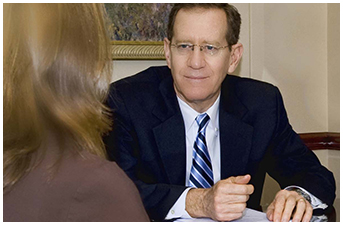Testamentary Capacity – Texas Mental Requirements for a Will to be Valid
The Texas Probate Code provides that a person of sound mind may execute a will.[1] As used in the Estates Code, the term “of sound mind” means “having testamentary capacity.” Testamentary capacity requires that at the time of the execution of the will the decedent must have had sufficient mental ability to:
- understand the business in which the decedent was engaged (the making of a will);
- understand the effect of his act in making the will;
- understand the general nature and extent of his property;
- know his next of kin and natural objects of his bounty; and
- collect in his mind the elements of the business to be transacted, and hold them long enough to perceive at least their obvious relation to each other, and to be able to form a reasonable judgment as to them.
In Texas, numerous cases have been litigated concerning whether a testator had the requisite testamentary capacity to make a will. When challenges are brought concerning testamentary capacity, the consequences can be substantial. Often on one side will be the beneficiaries of a will if the will is found to be valid (in other words, if the testator had the requisite capacity at the time the will was made and the will otherwise is valid), while on the other side others, who may be beneficiaries under a prior will or beneficiaries who take under intestate succession.
Each Testamentary Capacity Case is Unique
As will contest lawyers, we represent our clients’s interests in cases where testamentary capacity is challenged. If you are facing a situation concerning testamentary capacity with respect to a will, we would invite you to call us so that we can learn about your case.
1 Estates Code Section 251.001




